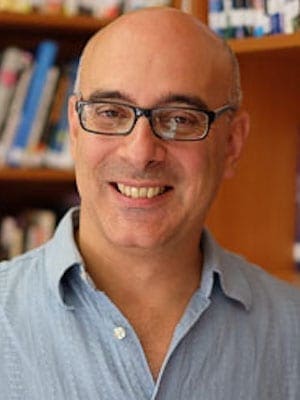The mandate of the Institute of Middle East Studies is “to bring about positive transformation in thinking and practice between Christians and Muslims in the Middle East and beyond.”
In continuation with last year, the organizing team of this year’s Middle East Conference felt it needed to keep tackling some important human rights issues that are pressing in today’s Arab world, but which also have significant echoes outside our region.
Last year, we tackled the very pressing issue of Palestinian refugees, primarily in Lebanon, but also in other neighboring countries.
Significant historical, political and theological background was also offered to frame the issue appropriately from a Kingdom of God perspective.
The Palestinian refugee crisis may well represent the most serious instance of human rights abuse of our times, to which the international community – as well as regional governments – needs to own up. It certainly deserved its own dedicated Middle East Conference.
This year we will be dealing with more human rights issues:
â— Conversion out of Islam and the resulting consequences for converts due to the so-called “apostasy law”
â— The existing tension between a Western understanding of freedom of speech and the responsibility that many feel in the Muslim world to defend God and other religious symbols from unrestrained offense and provocation
â— The widespread problem of human trafficking in the region that takes the form of domestic labor and sex workers, which verges in many respects on a contemporary form of slavery
â— The internal trafficking of children and child labor
These problems will be approached through multiple lenses.
Habib Malik, a professor and son of the late Lebanese statesman Charles Malik, who was a key contributor to the U.N.’s Universal Declaration of Human Rights, will share about his father’s role and help us consider our topic from a historical and global perspective.
Paul Fiddes, veteran Baptist theologian and Oxford professor, will help us acquire a biblical and theological perspective on human rights. He will share from his vast experience in dialogue with the Catholic Church and, more recently, with Islam.
Ziya Meral, Turkish activist and scholar, will help us understand the dynamics of interreligious conversion with some of its sociological and political ramifications.
Tim Costello, World Vision Australia’s director, will offer his deep insights into issues of human trafficking from his extensive experience as an activist and leader who has led the church in Australia in responding significantly to this global problem.
Dr. Danut Monasterianu, World Vision’s regional director for faith and development, will share a spiritual reflection every morning to help us frame our thinking in the Bible, supplementing these with his experience of living under former Communist Romania.
This year, as each year, we will not only be listening to Christian speakers on Islam. Several Muslim guests will be presenting us with Muslim perspectives on our topics.
Have you considered, for instance, what a Muslim cleric or theologian might have to say on the perceived contradiction between the Quran’s teaching on religious freedom and Islamic law’s almost unanimous call for the punishment of a convert? This year’s conference will offer precisely such an opportunity.
Or how about the street reaction of Muslim masses to the burning of a Quran or the caricatured drawing of their prophet? You will hear that such issues are more complex than they might seem to us on first exposure.
Muslim speakers will also help us see the Quran’s and Islam’s view of human rights. Is the issue, as we have become familiar with it, as “universal” as we have come to view it? Or are there other valid perspectives on the complex dynamics between our rights and responsibilities toward God and one another?
As usual, this year’s conference will go beyond the theoretical. Conference participants will take part in small group discussions with Muslim students, activists and leaders.
We will hear personal testimonials of activists and have the opportunity to engage, ask questions and learn from some of their amazing initiatives.
We will also learn about the systemic dimensions of such problems as we acquire insight into the Lebanese government and legal role in increasing or decreasing such problems.
We will listen, learn and respond to God’s compassionate heart for justice.
Martin Accad is director of the Institute of Middle East Studies at Arab Baptist Theological Seminary in Beirut, Lebanon. This column first appeared in the ABTS e-newsletter for March 2013 and is used with permission.
Click here to learn more about the upcoming Middle Eastern Conference in Beirut.

